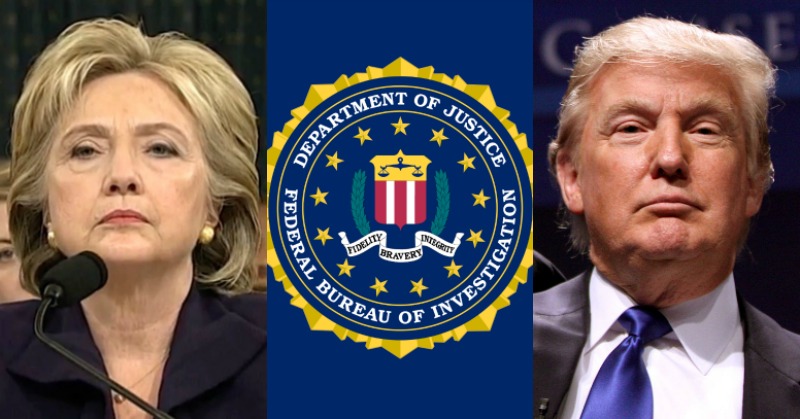The Justice Department’s internal watchdog is expected to find in a forthcoming report that political bias did not taint top officials running the FBI investigation into possible coordination between Russia and the Trump campaign in 2016.
Inspector General Michael Horowitz has concluded that FBI officials did not act improperly in opening the Russia investigation, according to officials who spoke on the condition of anonymity to discuss the sensitive report.
The much-anticipated report due out Dec. 9 rebuts accusations of a political conspiracy among senior law enforcement officials against the Trump campaign to favor Democrat Hillary Clinton while also knocking the bureau for procedural shortcomings in the FBI, the officials said.
On balance, they said, it provides a mixed assessment of the FBI and Justice Department’s undertaking of a probe that became highly politicized and divided the nation.
“You can see how the warring factions will seize on the various parts of this to advance their respective narratives,” said a person familiar with the inspector general’s investigation.
President Trump and his allies repeatedly criticized the FBI and its leaders during the Russia investigation — especially former FBI director James B. Comey, former deputy director Andrew McCabe and former deputy assistant director Peter Strzok.
Strzok, in particular, faced allegations previously from the inspector general that anti-Trump text messages he exchanged with another FBI employee “created the appearance that investigative decisions they made were impacted by bias or improper considerations.”
That report, though, was focused on the FBI’s investigation of Clinton’s use of a private email server while she was secretary of state, and the inspector general also found “no evidence that the conclusions by the prosecutors were affected by bias.”
The inspector general is not expected to level accusations of bias against top-level FBI officials in the forthcoming report, people familiar with the matter said.
Instead, the most damaging findings seem directed at lower-level FBI employees, especially a lawyer who was part of the process to renew a warrant from the Foreign Intelligence Surveillance Court to monitor a former Trump campaign adviser, Carter Page.
As a part of the process to renew one of the later warrants, an FBI agent asked FBI lawyer Kevin Clinesmith whether Clinesmith could document a certain claim, people familiar with the matter said. Clinesmith, the people said, asserted that he could with an email from someone at another agency.
Before providing that email to the FBI agent, though, Clinesmith added text to it, the people familiar with the matter said.
They said it was a serious error in judgment, though Horowitz’s report is not expected to allege that Clinesmith’s action was motivated by political animus.
Clinesmith had previously provided a genuine copy of the email, without his addition, to a Justice Department lawyer, a person familiar with the matter said.
The inspector general report, the officials said, is divided into three parts.
One focuses on the opening of the Crossfire Hurricane probe of Papadopoulos. Another reviews the surveillance order on Page. A third assesses the bureau’s handling of Steele and his information.
According to the two officials, Horowitz is expected to conclude that the opening of Crossfire Hurricane was legally and factually justified.
His report will not provide fodder for several conservative conspiracy theories surrounding the case — particularly the notion that Papadopoulos was set up as part of a nefarious Western intelligence operation.
The Russia investigation turned up evidence that Moscow interfered in the 2016 election in “sweeping and systematic fashion.”
It was ultimately taken over by Robert S. Mueller III, who as special counsel racked up criminal charges against 34 people, including 26 Russian nationals, and secured guilty pleas from seven — including some of the highest-ranking officials in Trump’s presidential campaign.
Mueller ultimately found insufficient evidence to conclude that Trump or any of his associates had conspired with Russians, though his report alleged that the campaign was eager for such assistance and outlined episodes in which the president himself might have obstructed justice.
Trump is now the focus of an even more politically perilous investigation.
This time it’s an impeachment inquiry into whether he abused his office by pressing the president of Russia’s neighbor Ukraine to launch an investigation that would hurt a political rival of Trump’s in 2020.
Swept up in that inquiry is the president’s apparent belief that Ukraine — not Russia — was behind the 2016 election interference.
